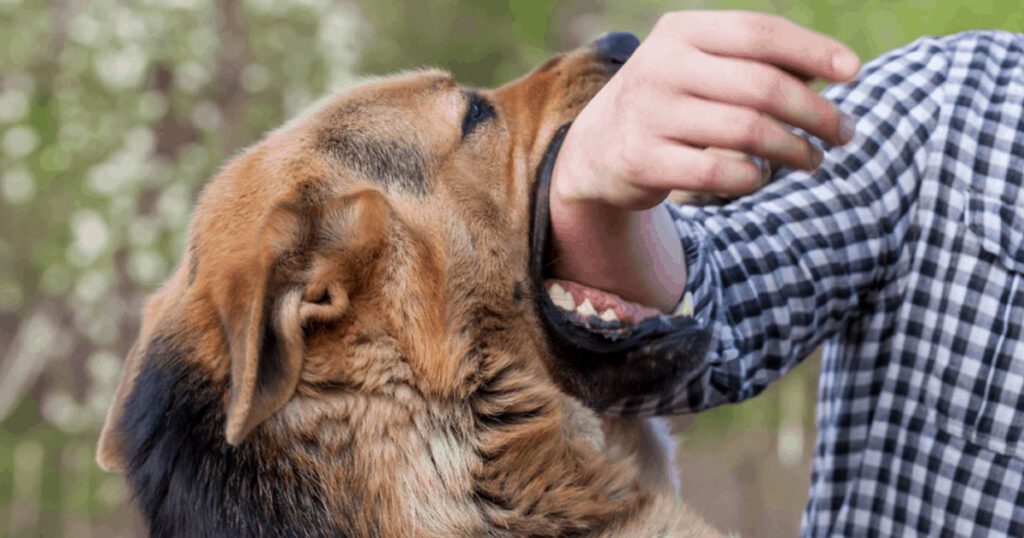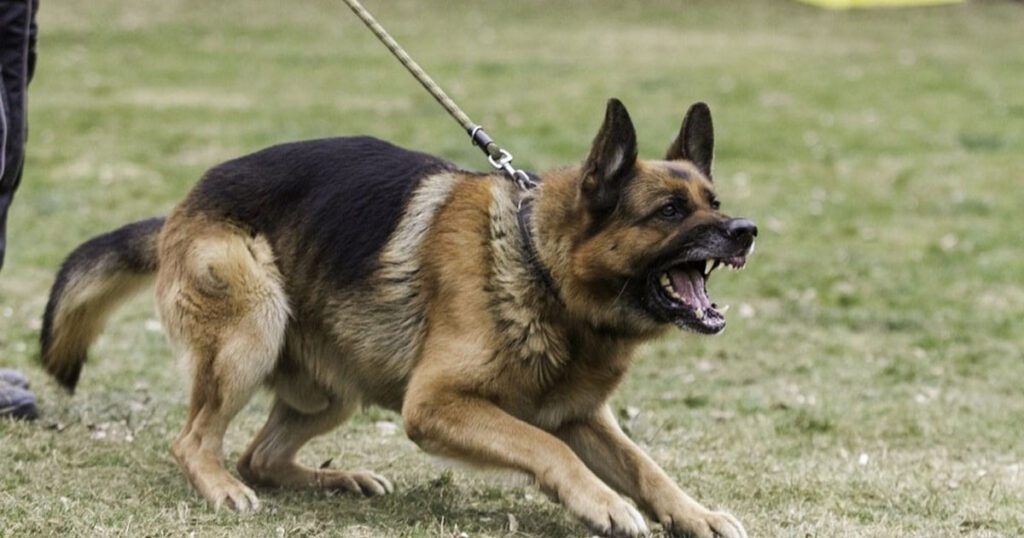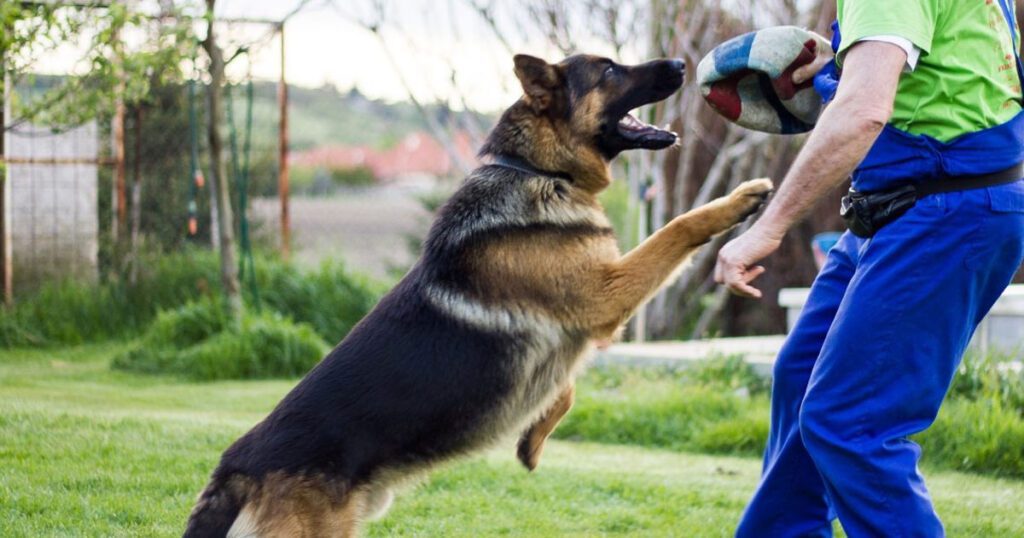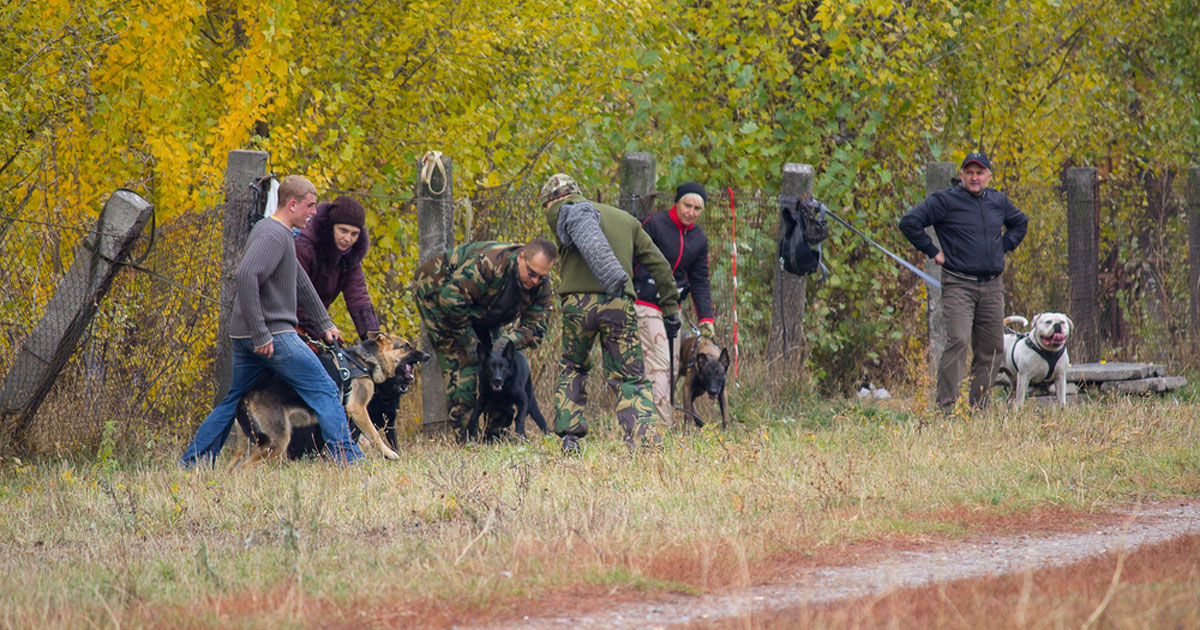“Why do German Shepherds bite their owners?” This is a common question that many dog owners ask, especially if they are experiencing biting behavior from their German Shepherd. It’s important to recognize that German Shepherds, like any dog breed, may exhibit biting tendencies for various reasons. In this article, we will delve into some potential causes of biting behavior in German Shepherds and provide insights on how to prevent and address this issue.
By understanding the underlying reasons behind their biting behavior, we can work towards fostering a safe and harmonious relationship with our loyal and intelligent German Shepherd companions.
Table of Contents
Understanding German Shepherd Behavior Why Do They Bite?
German Shepherds are known for their intelligence, loyalty, and protective instincts, but like any other breed, they may exhibit behaviors that can be challenging to understand. One such behavior is biting, which can be alarming and concerning, especially if it involves their owners. It’s important to remember that German Shepherds have specific triggers and reasons for biting, and addressing these issues can help prevent such incidents.
German Shepherds bite their owners due to various reasons:
- Lack of Socialization: Insufficient exposure to different people, animals, and environments during their early development stages can lead to fear or anxiety, causing them to resort to biting as a defense mechanism.
- Fear or Threat: If a German Shepherd feels threatened or senses danger, they may resort to biting as a way to protect themselves or their family members.
- Possessiveness or Resource Guarding: German Shepherds are known to be protective of their belongings, such as toys or food. If they feel that their possessions are being threatened, they may display aggressive behavior, including biting.
- Lack of Training and Boundaries: Proper training and setting clear boundaries are essential for any dog breed, including German Shepherds. Without consistent training, they may not understand appropriate behaviors, leading to biting incidents.
If your German Shepherd is displaying biting behavior, it’s crucial to consult with a professional dog trainer or behaviorist who can assess the situation and provide guidance. They can help identify the underlying causes, develop a tailored training plan, and teach you effective techniques to address and modify your dog’s behavior.
Remember, biting behavior should never be ignored or taken lightly. It’s essential to address the issue promptly to ensure the safety of both your German Shepherd and those around them. With proper training, socialization, and patience, most biting issues can be resolved, allowing your German Shepherd to become a well-behaved and loving companion.
The Psychology Behind German Shepherds Biting Their Owners
German Shepherds are known for their intelligence, loyalty, and protective nature. However, there are instances where German Shepherds may exhibit aggressive behaviors, including biting their owners. Understanding the psychology behind this behavior is crucial for dog owners. German Shepherds attack their owners due to a combination of factors, such as fear, anxiety, lack of socialization, territorial instincts, or perceived threats.
It’s important to remember that biting is a form of communication for dogs, and it usually occurs as a last resort when other warning signals have been ignored. To prevent biting incidents, proper socialization, positive reinforcement training, providing a safe environment, and seeking professional help when necessary are essential.
Responsible ownership, patience, and consistent training can help create a strong bond of trust and reduce the likelihood of German Shepherds biting their owners.

Factors Influencing German Shepherds to Bite their Owners
German Shepherds are generally known for their loyalty, intelligence, and protective instincts. However, in rare cases, they may exhibit aggressive behavior, including biting their owners. Understanding the factors that contribute to this behavior is crucial for responsible ownership. German Shepherds bite their owners due to various reasons, such as fear, lack of socialization, pain or illness, resource guarding, dominance issues, or inadequate training.
Additionally, a history of abuse or neglect can also contribute to aggressive tendencies. It is important to consult with a professional dog behaviorist or trainer to identify the root causes and develop a tailored approach to address this issue.
With proper training, socialization, and care, most German Shepherds can become well-adjusted and non-aggressive companions.
German Shepherds and Resource Guarding A Potential Cause of Biting
German Shepherds are generally loyal and loving companions, but like any breed, they can display undesirable behaviors such as biting. One common cause of biting in German Shepherds is resource guarding. Resource guarding occurs when a dog becomes possessive over items, such as food, toys, or even their owner. This behavior can escalate if not addressed promptly.
It’s important to understand that resource guarding is a natural instinct for dogs, but it can be managed through proper training and socialization. Seek the guidance of a professional dog trainer or behaviorist who can help you address resource guarding in a safe and effective manner.
Always prioritize the safety of yourself and others when dealing with a German Shepherd displaying aggressive behavior, and never hesitate to seek professional assistance.
Fear and Anxiety Common Triggers for German Shepherd Biting
German Shepherds are known for their loyalty and protective nature, but it’s important to understand that fear and anxiety can sometimes trigger biting behavior, even towards their owners. When German Shepherds feel threatened or overwhelmed, they may resort to biting as a means of self-defense or to establish boundaries.
Common triggers for such behavior include experiences of trauma, lack of socialization, being in unfamiliar or stressful situations, or feeling threatened by strangers or other animals. Proper training, socialization, and creating a calm and secure environment are crucial for preventing biting incidents.
Consulting with a professional dog trainer or behaviorist can help address the underlying causes of fear and anxiety and develop strategies to manage and mitigate the biting behavior effectively.
German Shepherd Training and Socialization Preventing Biting Incidents
German Shepherds are intelligent and loyal dogs, but like any breed, they can exhibit biting behavior if not properly trained and socialized. To prevent biting incidents, early training and socialization are crucial. Start with basic obedience commands, teaching them to respond to “sit,” “stay,” and “no.” Properly socialize your German Shepherd by exposing them to various people, animals, and environments from a young age.
This helps them develop confidence and reduces the likelihood of fear-based aggression. Additionally, provide them with appropriate outlets for their energy and mental stimulation, such as interactive toys and regular exercise.
Consistency, positive reinforcement, and seeking professional guidance if needed are key to preventing biting incidents and fostering a well-behaved and happy German Shepherd.

Recognizing Early Warning Signs of German Shepherd Aggression
German Shepherds are generally loyal and loving dogs, but like any breed, they can display aggressive behavior if not properly trained and socialized. Recognizing the early warning signs of aggression is crucial to prevent any potential harm. One concerning behavior is when German Shepherds bite their owners. This can be triggered by various factors, such as fear, territoriality, resource guarding, or frustration.
Signs of aggression may include growling, bared teeth, raised hackles, stiff body posture, intense staring, or snapping. It’s essential to address these warning signs promptly by seeking professional help from a qualified dog trainer or behaviorist.
Early intervention, consistent training, and positive reinforcement can help redirect their behavior and ensure a safe and harmonious relationship between German Shepherds and their owners.
Genetic Predisposition Are German Shepherds More Prone to Biting?
While German Shepherds are known for their intelligence, loyalty, and protective nature, it is important to address the topic of biting. While no breed is inherently prone to biting, certain factors such as genetics, socialization, and training can influence a dog’s behavior. German Shepherds, like any other breed, can exhibit biting behavior if not properly trained or socialized.
It is crucial to remember that aggression or biting tendencies in German Shepherds are usually the result of environmental factors rather than genetic predisposition alone. Responsible ownership, early socialization, positive reinforcement training, and proper supervision can help prevent any potential biting issues. By providing a loving and structured environment, German Shepherds can grow up to be well-behaved and gentle companions.
Common Mistakes that Encourage German Shepherd Biting Behavior
German Shepherds are known for their loyalty and protective nature, but sometimes they may exhibit biting behavior towards their owners. Understanding the common mistakes that can encourage this behavior is crucial for preventing it. Firstly, inadequate socialization during the puppy stage can lead to fear-based aggression. It’s essential to expose your German Shepherd to various people, animals, and environments to build their confidence.
Additionally, rough play or encouraging aggressive behavior can confuse them and reinforce biting tendencies. Inconsistent training and a lack of clear boundaries can also contribute to biting behavior. German Shepherds need consistent, positive reinforcement training to understand what is expected of them. Lastly, neglecting their exercise and mental stimulation needs can result in pent-up energy, leading to frustration and potential biting.
By avoiding these mistakes and providing proper training, socialization, and mental and physical stimulation, you can help prevent German Shepherds from biting their owners.
German Shepherd Puppy Biting How to Stop it Early
German Shepherd puppies have a natural inclination to nip and bite during their teething phase. However, it’s crucial to address this behavior early on to prevent it from becoming a habit or escalating into aggression. If German Shepherd puppies are allowed to bite their owners without consequences, it can lead to problems later on. Here are some effective strategies to stop German Shepherd puppy biting:
- Redirect their attention: Provide appropriate chew toys and redirect their biting behavior towards these toys.
- Consistent training: Teach your puppy the “leave it” and “gentle” commands to discourage biting and encourage gentle play.
- Positive reinforcement: Reward your puppy for good behavior, such as licking instead of biting, to reinforce positive habits.
- Socialization: Expose your puppy to different people, animals, and environments to develop their bite inhibition and reduce fear-based aggression.
- Time-outs: If the biting persists, calmly and firmly say “no” and withdraw your attention, giving them a brief time-out to understand that biting results in loss of interaction.
Remember, patience and consistency are key when addressing German Shepherd puppy biting. Seek guidance from a professional dog trainer if needed.
German Shepherds and Lack of Proper Exercise A Link to Biting
German Shepherds are highly intelligent and active dogs that require plenty of physical exercise and mental stimulation. When these needs are not adequately met, German Shepherds may become frustrated, anxious, or bored, which can lead to behavioral issues, including biting. Biting can be a form of communication or a response to perceived threats or stress. Regular exercise helps release pent-up energy and promotes a calmer demeanor. Engaging in activities like walking, jogging, or playing fetch can help redirect their natural instincts and prevent undesirable behaviors. Additionally, providing mental stimulation through obedience training, puzzle toys, and interactive games can further reduce the likelihood of biting incidents. Proper exercise, along with positive reinforcement training and socialization, is crucial in raising a well-behaved and non-aggressive German Shepherd.

The Importance of Positive Reinforcement in German Shepherd Training
German Shepherds are known for their intelligence and loyalty, but like any dog, they require proper training and socialization. When it comes to training German Shepherds, positive reinforcement is essential. This training method focuses on rewarding desired behaviors rather than punishing unwanted ones. German Shepherds can have a tendency to bite their owners if not properly trained and socialized.
Positive reinforcement helps redirect their behavior by rewarding them for appropriate actions, such as sitting or staying, while ignoring or redirecting unwanted behaviors like nipping or biting. By using treats, praise, and play as rewards, German Shepherds learn to associate good behavior with positive outcomes, which strengthens the bond between owner and dog.
With consistent and positive training, German Shepherds can become well-behaved, obedient companions who understand boundaries and interact positively with their owners and others.
German Shepherd Biting Steps to Modify Aggressive Behavior
German Shepherds are known for their loyalty and protective nature, but sometimes they may exhibit biting behavior towards their owners. It’s crucial to address this aggressive behavior promptly to ensure a safe and harmonious relationship. Here are steps to modify German Shepherd biting:
- Identify the Triggers: Determine what causes the biting behavior, such as fear, possessiveness, or resource guarding.
- Seek Professional Help: Consult a professional dog trainer or behaviorist who specializes in aggression to evaluate the situation and provide guidance tailored to your German Shepherd’s needs.
- Establish Clear Boundaries: Set consistent rules and boundaries for your German Shepherd to understand their place in the family hierarchy. Reinforce positive behaviors and discourage aggressive tendencies.
- Socialization and Training: Expose your German Shepherd to various environments, people, and other animals from an early age. Enroll them in obedience training classes to reinforce proper behavior and improve their social skills.
- Provide Mental and Physical Stimulation: Engage your German Shepherd in daily exercise, play, and mental stimulation to channel their energy positively and reduce frustration that may lead to biting.
- Positive Reinforcement: Reward your German Shepherd for desirable behaviors with treats, praise, and affection. This positive approach reinforces good conduct and helps redirect aggressive tendencies.
- Avoid Physical Punishment: Never resort to physical punishment as it can worsen aggression and damage the trust between you and your German Shepherd.
Remember, modifying biting behavior takes time, patience, and consistency. By addressing the issue promptly and implementing these steps, you can help your German Shepherd overcome aggressive tendencies and build a trusting and loving bond. If the biting behavior persists or escalates, consult a professional for further assistance.
Biting as a Form of Communication Decoding German Shepherd Body Language
German Shepherds are intelligent and loyal dogs known for their strong bite force. However, it is crucial to understand that biting is a form of communication for German Shepherds and not necessarily a sign of aggression. In certain situations, German Shepherds may resort to nipping or biting their owners to express various needs or emotions. It could be a sign of discomfort, fear, pain, or even playfulness.
As responsible dog owners, it is essential to decipher their body language to understand the underlying message. By observing their facial expressions, body posture, and tail movements, we can identify the triggers and work towards addressing any underlying issues. Professional training and socialization can help prevent biting incidents and ensure a harmonious relationship with your German Shepherd.
Remember, with proper understanding and communication, biting can be minimized, and a strong bond can be established based on trust and respect.
Seeking Professional Help When to Consult a Dog Behaviorist for German Shepherd Biting
German Shepherds are generally known for their intelligence, loyalty, and gentle nature. However, there are instances where German Shepherds may exhibit aggressive behavior, including biting their owners. If you find yourself in a situation where your German Shepherd is biting you or displaying aggressive tendencies, it is crucial to seek professional help from a qualified dog behaviorist.
A behaviorist can assess the underlying causes of the biting behavior and develop a tailored plan to address it. Some common reasons for biting include fear, resource guarding, or lack of proper socialization. A behaviorist will work with you to modify your dog’s behavior through positive reinforcement techniques and provide guidance on training and management strategies.
Remember, early intervention is essential to ensure the safety of both you and your beloved German Shepherd.
Frequently Asked Questions
Q: Why do German Shepherds bite their owners?
Ans: German Shepherds may bite their owners due to fear, anxiety, resource guarding, or lack of socialization.
Q: How can I prevent my German Shepherd from biting me?
Ans: Proper socialization, positive reinforcement training, and seeking professional help from a dog behaviorist can help prevent biting behaviors.
Q: Are German Shepherds more prone to biting than other breeds?
Ans: No, biting tendencies can vary among individual dogs regardless of breed. However, early training and socialization are crucial for all breeds, including German Shepherds.
Q: What should I do if my German Shepherd bites me?
Ans: Seek medical attention if necessary and consult with a professional dog behaviorist to address the underlying causes and prevent future biting incidents.
Q: Can German Shepherds be trained out of biting behaviors?
Ans: Yes, with proper training and behavior modification techniques, most German Shepherds can be trained to curb biting tendencies and exhibit appropriate behaviors.
Conclusion
In conclusion, while it is unfortunate that some German Shepherds may exhibit biting behavior towards their owners, it is important to remember that this behavior can be addressed and modified with the right approach. Seeking professional help from a dog behaviorist is crucial in understanding the underlying causes of biting and implementing effective training strategies.
Early intervention, proper socialization, and positive reinforcement training can significantly reduce the chances of biting incidents. Remember that each dog is unique, and with patience, consistency, and professional guidance, German Shepherds can overcome their biting tendencies and develop into well-behaved and loving companions.
By taking proactive steps, you can create a safe and harmonious bond with your German Shepherd, ensuring a happy and healthy relationship for both of you.

I’m David, an expert contributor and writer, with two furry friends of my own, I know the challenges of raising and caring for dogs. From training to nutrition and health, my goal is to provide valuable insights and advice to help create strong bonds and happy, healthy lives. Find me in Twitter.




